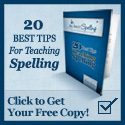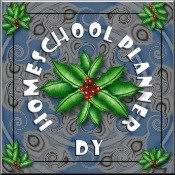I started off this blog with a list of goals to work towards with Sam. We have met many of them and should have no trouble meeting the remainder by his 7th birthday.
"A Formidable List of Attainments for a Child of Six", a reprint of a curriculum outline from a CM school in the 1890's.
1. To recite, beautifully, 6 easy poems and hymns
He has memorized 2 poems.
2. to recite, perfectly and beautifully, a parable and a psalm
We haven't done this yet but he memorizes quite easily so this shouldn't be a problem to complete in the next 6 months.
3. to add and subtract numbers up to 10, with dominoes or counters
Already done with MUS Alpha. Will continue to work through MUS.
4. to read--what and how much, will depend on what we are told of the child
Nice vague goal, huh? I've rambled enough about his reading in our Fall Quarter update.
5. to copy in print-hand from a book
Sam's handwriting is getting better and better each week.
6. to know the points of the compass with relation to their own home, where the sun rises and sets, and the way the wind blows
7. to describe the boundaries of their own home
8. to describe any lake, river, pond, island etc. within easy reach
Easily met.
9. to tell quite accurately (however shortly) 3 stories from Bible history, 3 from early English, and 3 from early Roman history (my note here, we may want to substitute early American for early English!)
He recalls many of our stories from our Readings. Easily met.
10. to be able to describe 3 walks and 3 views
11. to mount in a scrap book a dozen common wildflowers, with leaves (one every week); to name these, describe them in their own words, and say where they found them.
12. to do the same with leaves and flowers of 6 forest trees
13. to know 6 birds by song, colour and shape
We were working towards meeting all these goals without difficulty until getting side tracked this fall. We should have no trouble meeting these goals.
14. to send in certain Kindergarten or other handiwork, as directed
15. to tell three stories about their own "pets"--rabbit, dog or cat.
Easily met.
16. to name 20 common objects in French, and say a dozen little sentences
I keep putting off Spanish.
17. to sing one hymn, one French song, and one English song
18. to keep a caterpillar and tell the life-story of a butterfly from his own observations.
All easily met except the Spanish song.
So with the exception of Spanish that we just haven't started we will meet all these goals this year.
So the question is where to go from here? I started down this path of a CM education because of my observations of my older kids as they self-educate. This past year I have re-read the CM series, reviewed her PNEU curriculum and participated in many dialogues with CM educators and I have come to a few conclusions.
- I do not have the ability or desire to recreate a carbon-copy of a PNEU curriculum down to the precise page count and brushwork! Counting pages per quarter would drive me crazy.
- I work better with curriculum that has some of the work done for me.....so although there are many a homeschooling mama who likes to choose their own copywork , etc. I am not one of them.
-It is more important to work with my children's abilities/nuances than to work with a specific curriculum recommendations. Sam preferred SOTW and retains far more of the readings then if we followed the AO Year 1 recommendations.
Sam's current age 6 curriculum has 3 ....yes 3!....Susan Wise Bauer texts and I would never classify myself a classical educator according to her definition of the word. Her LA texts help me to fulfill my CM Language Art framework for this age and Sam's just likes SOTW. I have reread The Well Trained Mind and walked away with the same feeling I had the first time I read it. Bah! TOO MUCH STUFF! Will NEVER work for me and my kids! I have continue reading classical education texts specifically the Latin-Centered Curriculum and now have a more balanced sense of what is a classical education.
Another thing I relearned...... Nothing..... and I mean nothing...... gets a bunch of CM-purists riled up quite like comparing CM to Classical Education. Obviously TWTM and CM have virtually nothing in common even though SWB texts do mesh quite easily. BUT compare LLC and CM on an academic level and the similarities are there.
So back to the original question....where to go from here. What I will not do ......textbooks, unit-studies, lapbooks, TWTM, or unschool. So does that make me a CMer, Classical, Literature-based, LCCer, or the plain ol' nondescript eclectic? Does it matter? Probably not. But my new maxim is
Multum non Multa
not many things, but much.
I have been reviewing CM List to attain by age 12 and LCC trying to get a feel for the direction we will head. LCC does not have such a list but Handicrafts, Tonic Sol-fa, brushwork would not be on that list....and it most certainly would not be on that list before Math, Latin or Plutarch!
CM has a list of attainment for children to accomplish in the years 6-12.
What a Child Should Know at Twelve, from the appendix at the back of School Education, Volume 3 of her series.
The six years' work--from six to twelve--which I suggest, should and does result in the power of the pupils--
(a) To grasp the sense of a passage of some length at a single reading: and to narrate the substance of what they have read or heard.
(b) To spell, and express themselves in writing with ease and fair correctness.
(c) To give an orderly and detailed account of any subject they have studied.
(d) To describe in writing what they have seen, or heard from the newspapers.
(e) They should have a familiar acquaintance with the common objects of the country, with power to reproduce some of these in brushwork.
(f) Should have skill in various handicrafts, as cardboard Sloyd, basket-making, clay-modelling, etc.
(g) In Arithmetic, they should have some knowledge of vulgar and decimal fractions, percentage, household accounts, etc.
(h) Should have a knowledge of Elementary Algebra, and should have done practical exercises in Geometry.
(i) Of Elementary Latin Grammar; should read fables and easy tales, and, say, one or two books of 'Caesar.'
(j) They should have some power of understanding spoken French, and be able to speak a little; and to read an easy French book without a dictionary.
(k) In German, much the same as in French, but less progress.
(l) In History, they will have gone through a rather detailed study of English, French, and Classical (Plutarch) History.
(m) In Geography they will have studied in detail the map of the world, and have been at one time able to fill in the landscape, industries, etc., from their studies, of each division of the map.(n) They will have learned the elements of Physical Geography, Botany, Human Physiology, and Natural History, and will have read interesting books on some of these subjects.
(o) They should have some knowledge of English Grammar.
(p) They should have a considerable knowledge of Scripture History and the Bible text.
(q) They should have learned a good deal of Scripture and of Poetry, and should have read some Literature.
(r) They should have learned to sing on the Tonic Sol-fa method, and should know a number of English, French, and German Songs.
(s) They should have learned Swedish Drill and various drills and calisthenic exercises.
(t) In Drawing they should be able to represent common objects of the house and field with brush or charcoal; should be able to give rudimentary expression to ideas; and should be acquainted with the works of some artists through reproductions.
(u) In Music their knowledge of theory and their ear-training should keep pace with their powers of execution
Subscribe to:
Post Comments (Atom)






1 comment:
You have done a lot of studying! I haven't read as widely as you on approaches, but I agree with Not Many, but Much. I follow AO loosely, and love it's richness but cut down when it gets overwhelming.
Post a Comment